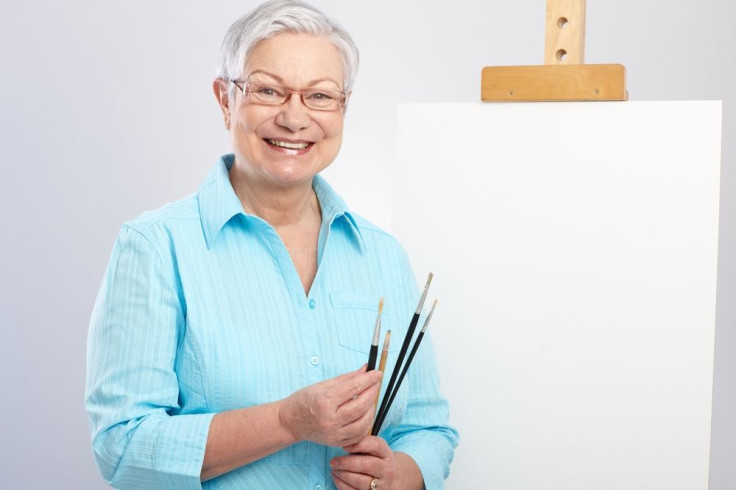Parkinson's Patients Taking Dopamine Drugs Find Creativity Surge, Generate More Artwork

People suffering from Parkinson’s disease experience complications, such as an inability to control limb movement, due to the impairment of nerve cells that produce the brain chemical dopamine. This reduction in dopamine levels has led many neurology experts to recommend dopaminergic drugs, drugs that increase dopamine levels, as a form of Parkinson’s treatment. A recent study conducted at Tel Aviv University in Israel suggests that dopaminergic drugs can increase creativity in Parkinson’s patients.
Lead researcher Professor Rivka Inzelberg began noticing an increase in artistic tendencies among Parkinson’s patients at Sheba Medical Centre clinic around two years ago. Inzelberg highlighted certain cases including a patient with no artistic background who became an award-winning poet after starting dopaminergic treatment and an architect who suddenly became a skilled painter. Inzelberg even went so far as to attribute Vincent Van Gogh’s artistic talent to a form of psychosis that increased his dopamine levels.
Inzelberg and her colleagues recruited 27 Parkinson’s patients who were being treated with dopamine agonists (drugs that mimic the effect of dopamine in the brain), levodopa (a drug that is converted into dopamine via the central nervous system), or a combination of the two drugs. Each of the study’s participants completed various assessments that tested depression, impulsive-compulsive disorders, creativity, and other cognitive abilities. Results of the Parkinson’s patients’ assessments were compared to healthy adults not affected by Parkinson’s.
Compared to healthy adults, Parkinson’s patients who were treated with dopaminergic drugs displayed an increase in verbal and visual creativity following the start of their treatment regimen. Despite concerns that this increase in creativity may be caused by compulsive behavior, there was no evidence of obsessive thinking. Instead, Inzelberg attributed the link between dopamine and creativity to novelty-seeking behavior which is thought to be controlled by areas of the brain that are responsible for the production of dopamine including the ventral striatum, substantia nigra, and hippocampus.
“Because the medication can cause a loss of impulse control — let's say, obsessive painting, obsessive hobby-ism — we wanted to check if there was a correlation between creativity measures and impulsivity and compulsivity measures,” Inzelberg told The Atlantic. “We also found that patients taking higher doses of dopaminergic medication had more creative answers.” “These results support a genuine change in neuropsychological processes underlying creativity,” the authors concluded.
According to the Parkinson’s Disease Foundation, Parkinson’s disease is a neurological disorder with symptoms that progress and get worse over time. Around one million people in the United States suffer from this condition that is caused by the impairment and deterioration of nerve cells in the brain, also known as neurons. Although there is no cure for Parkinson’s, experts currently treat patients with medication or surgery to help alleviate symptoms.
Source: Faust-Socher C, Kenett Y, Cohen O, Hassin-Baer S, Inzelberg R. Enhanced creative thinking under dopaminergic therapy in Parkinson disease. Annals of Neurology. 2014.



























